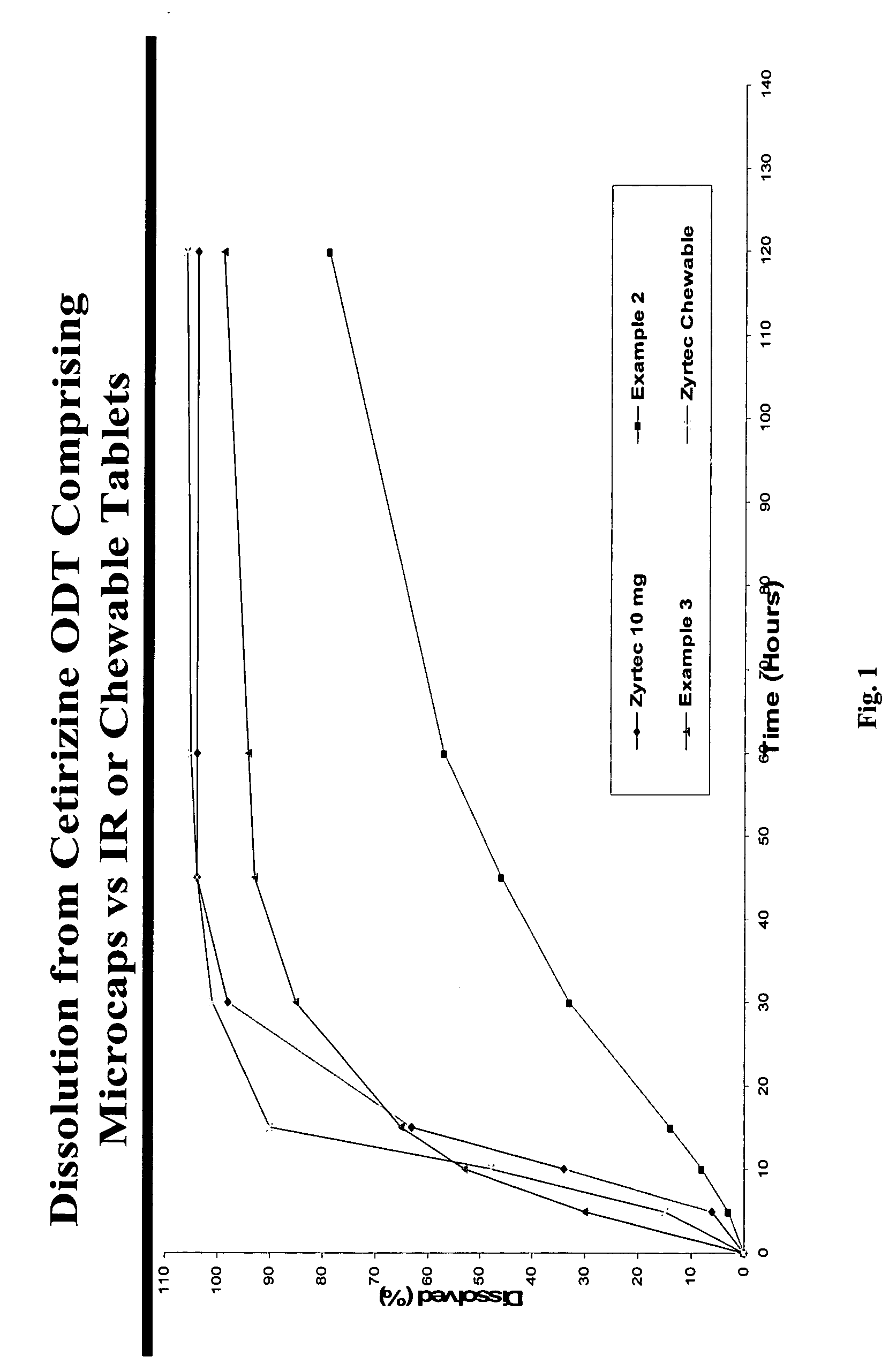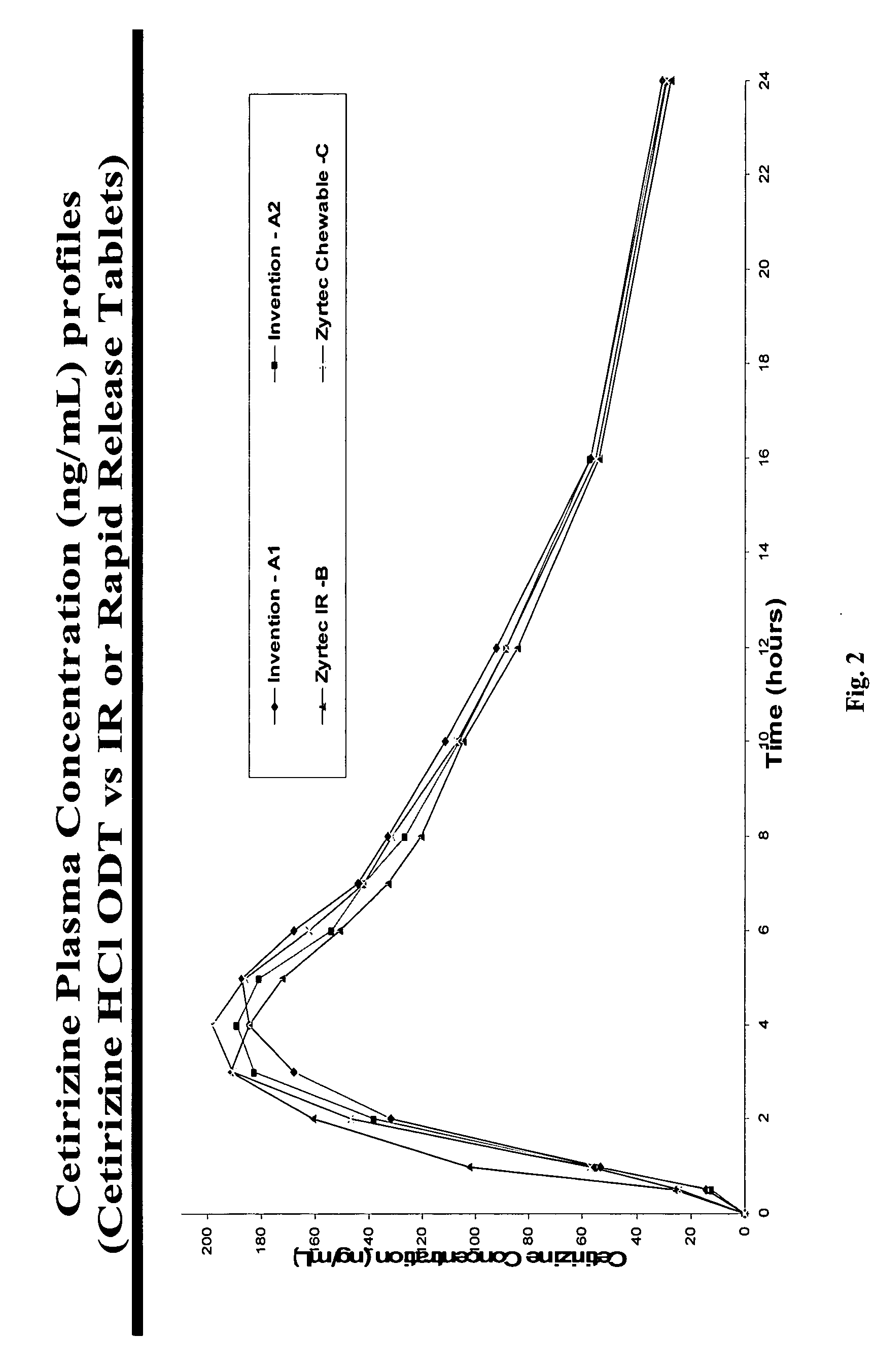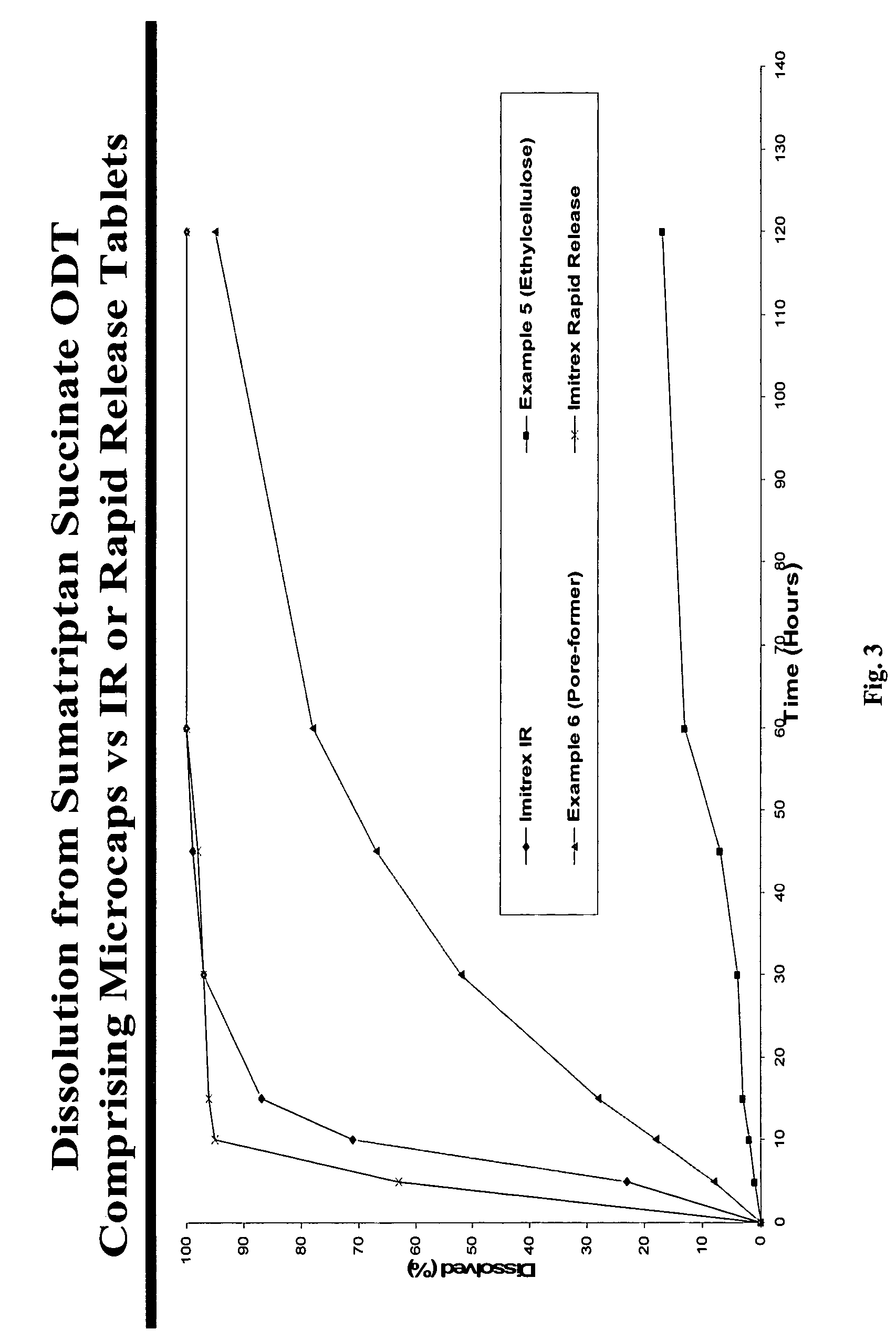Taste-masked pharmaceutical compositions prepared by coacervation
a technology of coacervation and composition, which is applied in the direction of drug compositions, pharmaceutical delivery mechanisms, organic active ingredients, etc., can solve the problems of poor taste, negative impact on treatment efficacy, and poor dosage forms
- Summary
- Abstract
- Description
- Claims
- Application Information
AI Technical Summary
Benefits of technology
Problems solved by technology
Method used
Image
Examples
example 1
Inventive
[0087] The Cetirizine Microgranules (drug load: approximately 20% cetirizine hydrochloride): Cetirizine hydrochloride (20%), microcrystalline cellulose (70%) and hydroxypropyl methylcellulose (Methocel K100LV at 10% by weight) were granulated with purified water in a high-shear granulator and dried in a tray-drying oven.
[0088] Taste-masked Microgranules (drug load: approximately 12.2% cetirizine hydrochloride): Microgranules (700 g) with a low friability obtained above were microencapsulated using the improved solvent coacervation process. Ethocel (ethylcellulose) Standard 100 Premium (100 cps), from Dow Chemicals (300 g) was dissolved in a 5-gallon coacervation tank at 80° C. The micronized pore-former (150 g calcium carbonate) was added into the coacervation tank at a product temperature of approximately 58° C. during the temperature-programmed cooling cycle to achieve a uniform distribution of the pore-former throughout the ethylcellulose membrane. Upon reaching the am...
example 2
Comparative
[0091] Cetirizine Microgranules (drug load: approximately 20% cetirizine hydrochloride): Cetirizine HCl (20%), microcrystalline cellulose (70%) and hydroxypropyl methylcellulose (Methocel K100LV at 10% by weight) were granulated with water in a high-shear granulator and dried in a tray-drying oven.
[0092] Taste-masked Microgranules (drug load: approximately 14% cetirizine hydrochloride): Microgranules with a low friability obtained above were taste-masked by solvent coacervation with 100% ethylcellulose as described in Example 1 except that no micronized calcium carbonate was added during the temperature-programmed cooling cycle. The ethylcellulose coating level was approximately 30% by weight.
[0093] Cetirizine Hydrochloride ODT, 10 mg (as cetirizine hydrochloride): 71 mg of taste-masked microparticles and 542.6 mg of rapidly-dispersing microgranules were blended with crospovidone (32.5 mg), an orange flavor (3.25 mg), Sucralose (0.65 mg) and compressed into tablets wit...
example 3
Inventive
[0094] Cetirizine Microgranules (drug load: approximately 20% cetirizine hydrochloride): Cetirizine hydrochloride (20%), microcrystalline cellulose (70%) and hydroxypropyl methylcellulose (Methocel K100LV at 10% by weight) were granulated with water in a high-shear granulator and dried in a tray-drying oven.
[0095] Taste-masked Microgranules (drug load: approximately 12.2% cetirizine hydrochloride): Microgranules with a low friability obtained above were taste-masked by solvent coacervation with 2 / 1 ethylcellulose / calcium carbonate (micronized) as described in Example 1.
[0096] Cetirizine Hydrochloride ODT, 10 mg (as cetirizine Hydrochloride): 82 g of taste-masked microparticles and 531.6 g of rapidly-dispersing microgranules were blended with crospovidone (32.5 mg), an orange flavor (3.25 g), Sucralose (0.65 g) and compressed into tablets with an average weight of 650 mg and average hardness of 97 N to demonstrate robustness of the manufacturing (taste-masking and tableti...
PUM
| Property | Measurement | Unit |
|---|---|---|
| Length | aaaaa | aaaaa |
| Length | aaaaa | aaaaa |
| Length | aaaaa | aaaaa |
Abstract
Description
Claims
Application Information
 Login to View More
Login to View More - R&D
- Intellectual Property
- Life Sciences
- Materials
- Tech Scout
- Unparalleled Data Quality
- Higher Quality Content
- 60% Fewer Hallucinations
Browse by: Latest US Patents, China's latest patents, Technical Efficacy Thesaurus, Application Domain, Technology Topic, Popular Technical Reports.
© 2025 PatSnap. All rights reserved.Legal|Privacy policy|Modern Slavery Act Transparency Statement|Sitemap|About US| Contact US: help@patsnap.com



